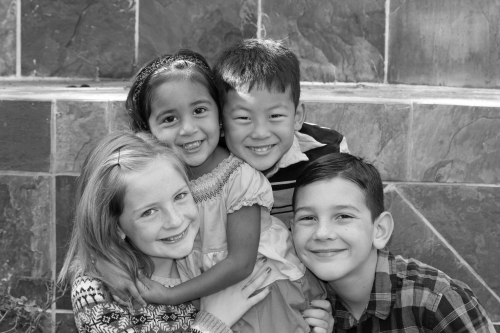243 Count Your Gratitudes!
Based on research by: Froh, Jeffery. J., Sefick, W. J., & Emmons, Robert A. (2008). Written by: Mara Rowcliffe, MS
How does gratitude influence early adolescence?
Psychologist Robert Emmons and colleagues evaluated the impact of a grateful outlook on well-being in adolescents. Their study consisted of 221 6th and 7th graders. Before beginning the study, students completed measures assessing well-being, life satisfaction, physical symptoms, reactions to aid, and positive social behavior. Researchers randomly assigned them to either a gratitude, hassles, or control condition for 2 weeks. Students in the gratitude group were asked to list 5 things they were grateful for since yesterday. In the hassles condition, they listed 5 things that irritated them since yesterday. The control condition had no assignment.
Results showed the gratitude group but not the hassles group increased their self-reported gratitude, optimism, life satisfaction, and decreased in negative feelings. Particularly significant was their satisfaction with their school experience immediately and at 3-week follow-up. Creating gratitude lists increased well-being in early adolescents. And, only the hassles group increased in negative feelings.
Encourage kids to consider what they are grateful for and appreciate. Join them in creating a gratitude list for themselves individually as well as for their family, school, community, country and world. That will increase their feelings of well-being.
References:
Froh, J. J., Sefick, W. J., & Emmons, R. A. (2008). Counting blessings in early adolescents: An experimental study of gratitude and subjective well-being. Journal of School Psychology, 46(2), 213-233.





